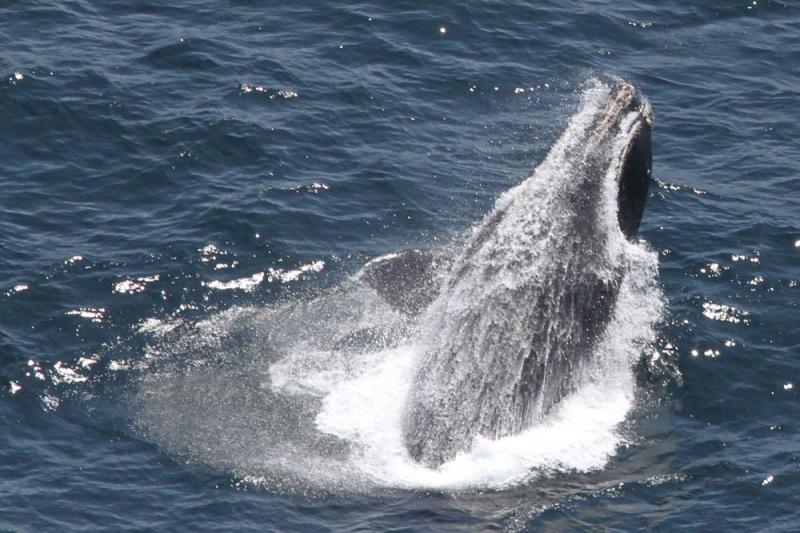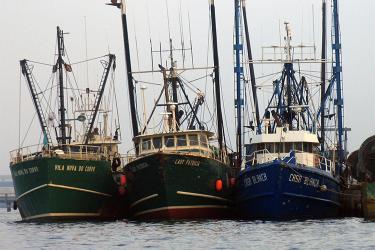Editor's Note December 20, 2024: Endangered North Atlantic right whales are approaching extinction. There are approximately 370 individuals remaining, including about 70 reproductively active females. Human impacts continue to threaten the survival of this species.
In December, NOAA Fisheries held another productive biannual engagement with officials from the Department of Fisheries and Oceans Canada to discuss ongoing efforts by both countries to protect and recover North Atlantic right whales, one of the world’s most endangered large whale species. Fisheries’ Deputy Assistant Administrator for Regulatory Programs, Sam Rauch, and our Regional Administrator for the Greater Atlantic Regional Fisheries Office, Mike Pentony, joined me for this meeting.
While this was the last of the 2021 biannual meetings with Canada on this topic, it was my first as the Assistant Administrator for Fisheries. Both of our countries face the same challenge: trying to protect every one of the North Atlantic right whales left in the world. Right now, fewer than 350 of these endangered whales remain. With the current number of females and the necessary resting time between births, 20 newborns in a calving season would be considered a relatively productive year. However, given the estimated rate of human-caused mortality and serious injury, we need approximately 50 or more calves per year for many years to stop the decline and allow for recovery. The only solution is to significantly reduce human-caused mortality and injuries, as well as stressors on reproduction. NOAA Fisheries is committed to working with Canada to stop the decline rangewide and promote the recovery of this iconic species. This year, there is some promising news—so far there are 11 confirmed mother-calf pairs currently swimming off the East Coast.
As our Canadian counterparts stepped through their current conservation measures and plans for the future, I gained a better understanding of their priorities. They use a variety of techniques to study, protect, and recover these endangered whales, just as we do.
Specifically, Canada shared details on a new grant program to test and refine whale-safe gear, including ropeless fishing gear technology and weak buoy lines. We discussed our ongoing efforts in gear analysis and in identifying where entanglements occur. Risk assessment was another topic we covered, including the level of risk reduction to right whales—especially from entanglements—that the Canadians are achieving under their conservation measures. We also discussed our respective regulations and goals with respect to reducing vessel speeds so as to curtail whale strikes.
These collaborative, biannual meetings are critical to keeping open lines of communication with Canada towards pressing forward to meet our mutual goals. I will continue to focus on working with Canada and fully support our colleagues in the Greater Atlantic Regional Office, the Northeast Fisheries Science Center, and national Office of Protected Resources. We will all continue working together with our Canadian counterparts on science, gear modifications and innovations, and management strategies to make progress in every way we can to further the protection of these endangered whales.
Janet Coit, Assistant Administrator for NOAA Fisheries




